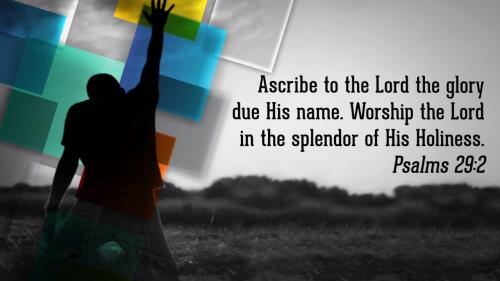-
Do All To The Glory Of God
Contributed by Roger Hasselquist on Aug 18, 2025 (message contributor)
Summary: As Christians, we are to live in a way that glorifies God. That is the message of the last part of First Corinthians chapter ten. Verse 31 there says that “whatever you do, do all the glory of God.” But we have to be careful, we may do things that do not give glory to God.
Alba 8-17-2025
DO ALL TO THE GLORY OF GOD
I Corinthians 10:23-33
Dan Blocker played the character Hoss on the TV series Bonanza. When Dan Blocker died unexpectedly at age 43, Hoss died. The producers knew they could not replace him. So they told the story that a woman was caught in a flood, and Hoss went to rescue her. He held her above the water with one hand and held a branch with the other to keep them from being washed away. He never let go. He died, but she lived. That was the explanation for why he was no longer in the series. Fans mourned the fictional character, but they agreed it was fitting that Hoss would die doing something like that.
In the 1980's, there was an article about a new made for TV movie, “Bonanza, the Next Generation”. In this new show the original Cartwrights were dead. Ben’s brother was running the Ponderosa. For various reasons, Adam’s son, little Joe’s son, and Hoss’ son were coming there to live. Now, Hoss had never married. So the new series said he had an illegitimate son and died before bringing the mother to the Ponderosa.
Test audiences were scheduled with fans of the original series. They were furious. They were thinking Ben had three sons by three wives. Maybe he had another son somewhere. Adam, sometimes a scholar and sometimes a Casanova, may have had an illegitimate son. If Joe had an illegitimate son, no one would be surprised. But Hoss? HOSS??? NOOOO!! It is said that fans refused to believe that Hoss had been immoral. And if a fictional character can inspire such belief in his character, how much more should we, “live such good lives among the pagans that, though they accuse [us] of doing wrong, they may see [our] good deeds and glorify God." (1 Peter 2:12 NIV) The word glory speaks of something or someone that is worthy of praise or exaltation. Psalm 96:2-4 says, “Sing to the Lord, bless His name; Proclaim the good news of His salvation from day to day. Declare His glory among the nations, His wonders among all peoples. For the Lord is great and greatly to be praised; He is to be feared above all gods.”
As Christians, we are to live in a way that glorifies God. That is the message of the last part of First Corinthians chapter ten. Verse 31 there says that “whatever you do, do all the glory of God.” But we have to be careful, we may do things that do not give glory to God. Because...
Not all things edify
Go back to verse 23. There the apostle Paul says, “All things are lawful for me, but not all things are helpful; all things are lawful for me, but not all things edify.” The word edify is a word that means to build a house. Buildings are referred to as an edifice. In the New Testament edify speaks about the kind of life we are building, this spiritual house that we live in; the building up of our Christian life. And it speaks to whether or not what we are doing leads to spiritual growth and the development of spiritual maturity. Not all things edify.
In the context of our scripture, Paul was addressing the Corinthians who were living in a society where many things were permissible. However, he was urging them to make choices not just based on what was permissible, but on what was beneficial and constructive. It's about making decisions that not only conform to God's laws but also promote growth, unity, and love. We should all ask “Will this be profitable for me as a Christian, and will this help me grow as a Christian?”
So if ever there is something we are considering whether we should do it or not, we may ask ourselves, “Can I do this?” But that question really boil down to this, “How far can I go before God gets upset?” Well, verse 23 says all things are lawful. Other translations say, “Everything is permissible.” At first glance, this statement may seem to give us carte blanche to do as we please. But we must understand the context in which it was written. Paul was addressing a community of believers who were grappling with their newfound freedom in Christ. They were no longer bound by the stringent laws of the Old Testament, and this newfound liberty was both exhilarating and confusing.
To say all things are permissible is not an invitation to lawlessness or moral laxity. Rather, it is an acknowledgment of the freedom we have in Christ. This freedom, however, is not a license to sin. Paul clarifies this in Romans 6:1-2 where he asks, “What shall we say then? Shall we continue in sin that grace may abound? Certainly not!” The King James Version says, “God forbid!”

 Sermon Central
Sermon Central



